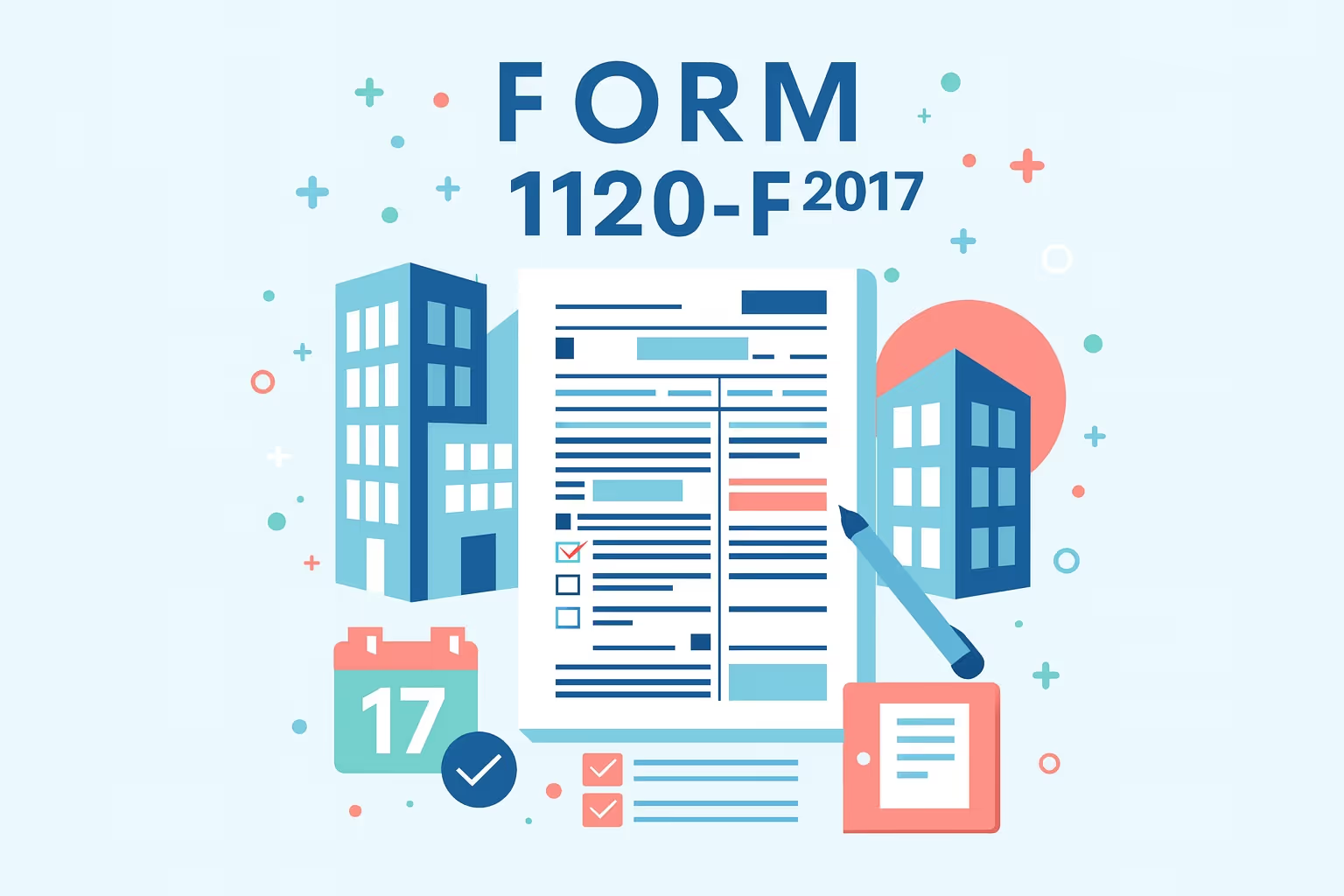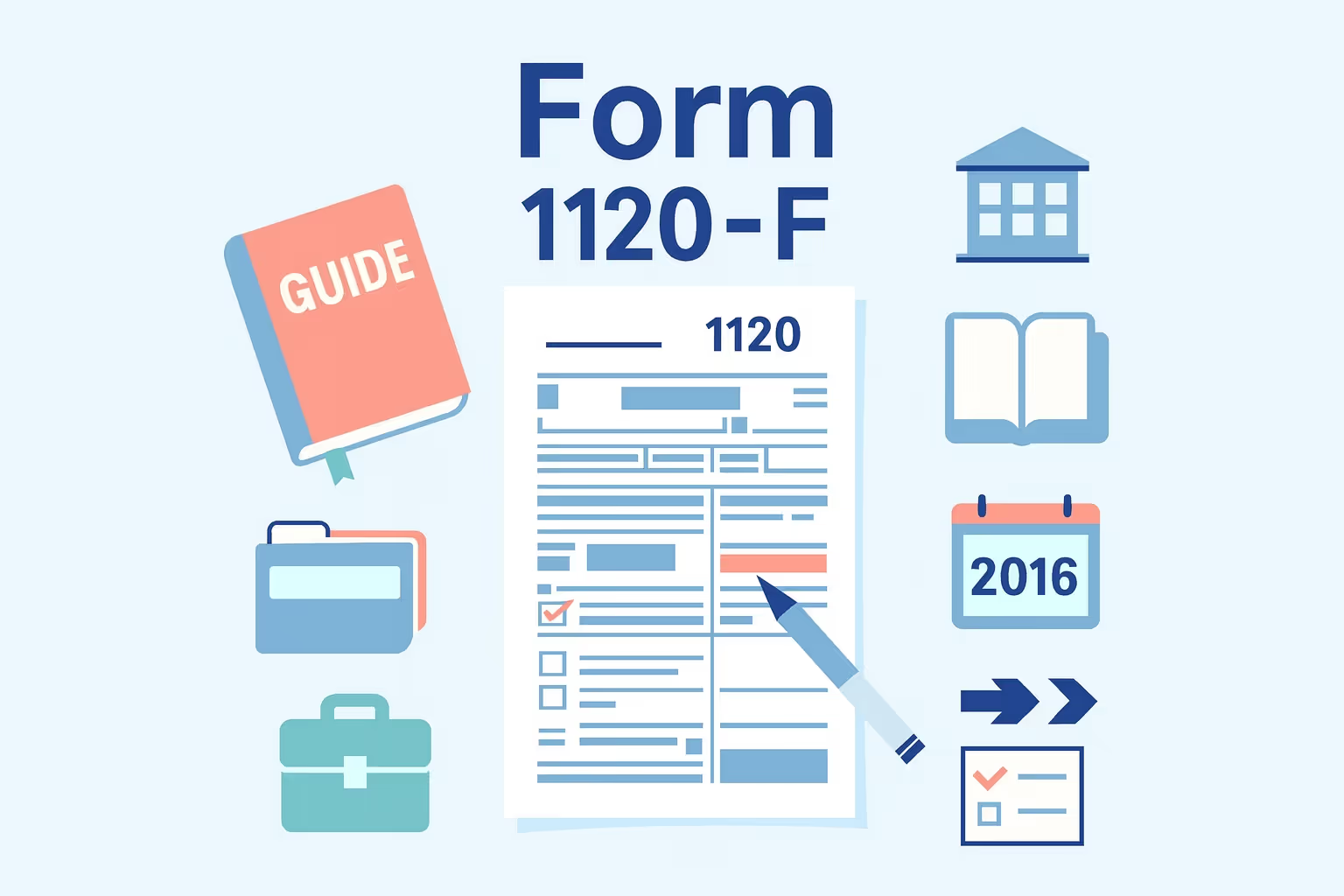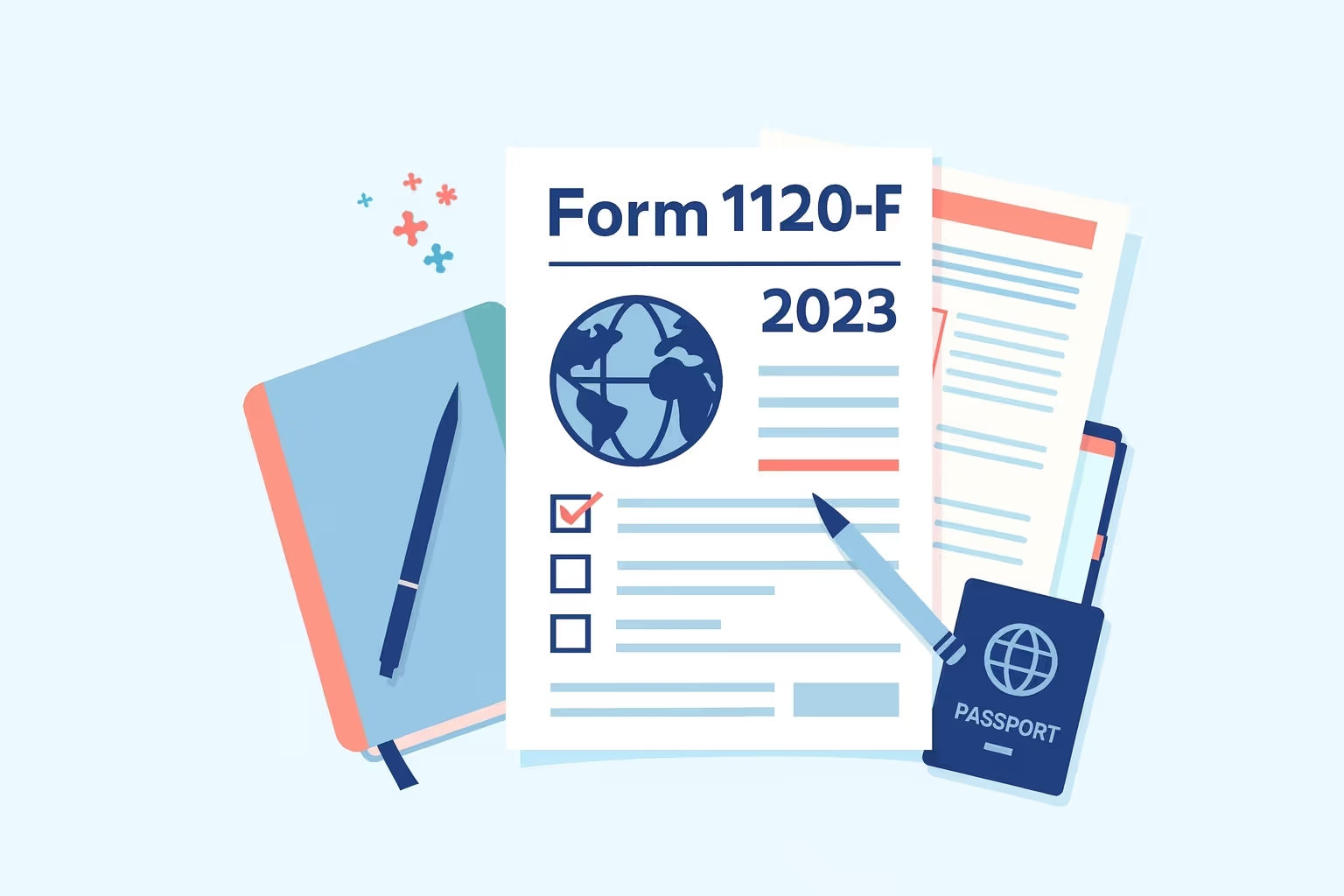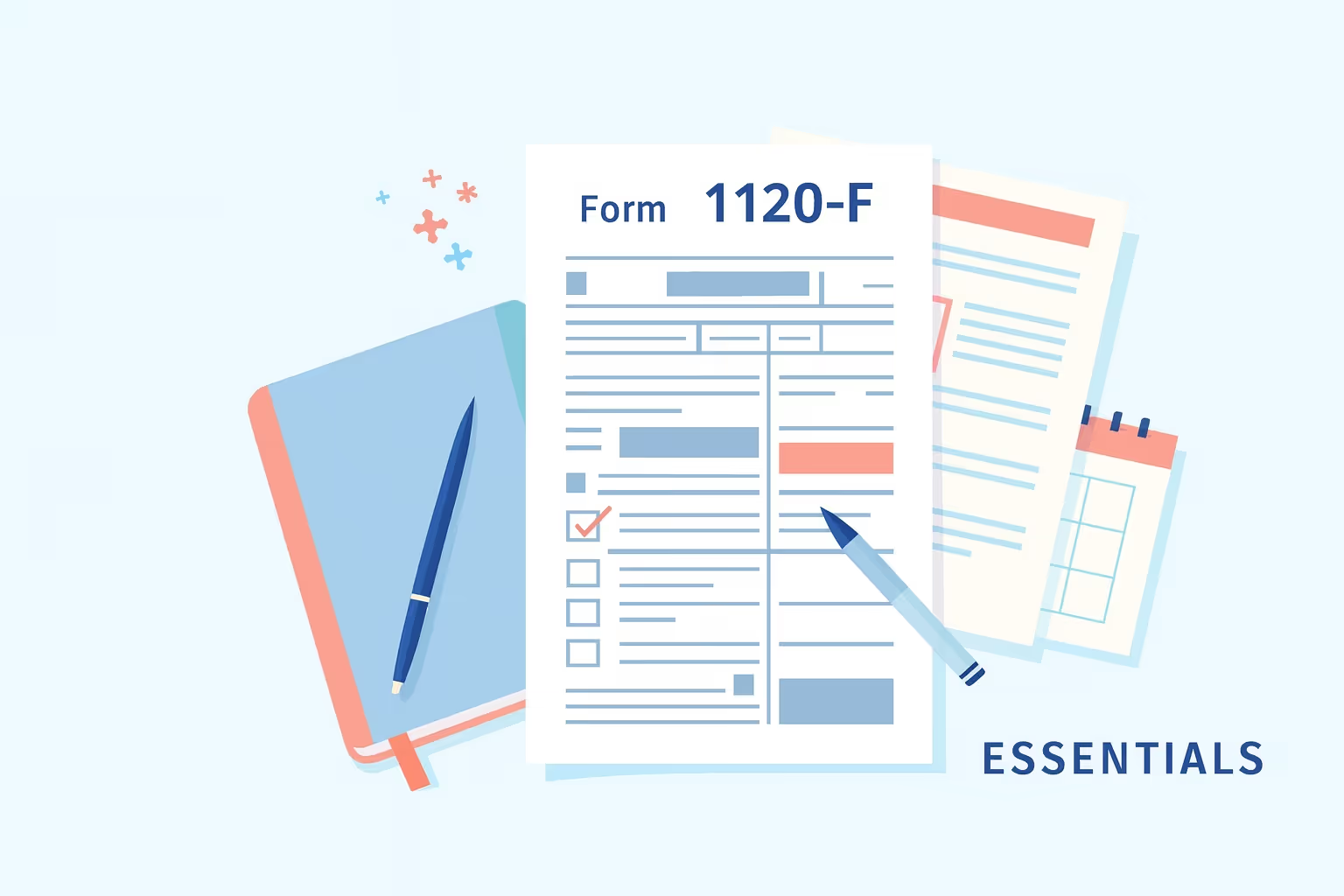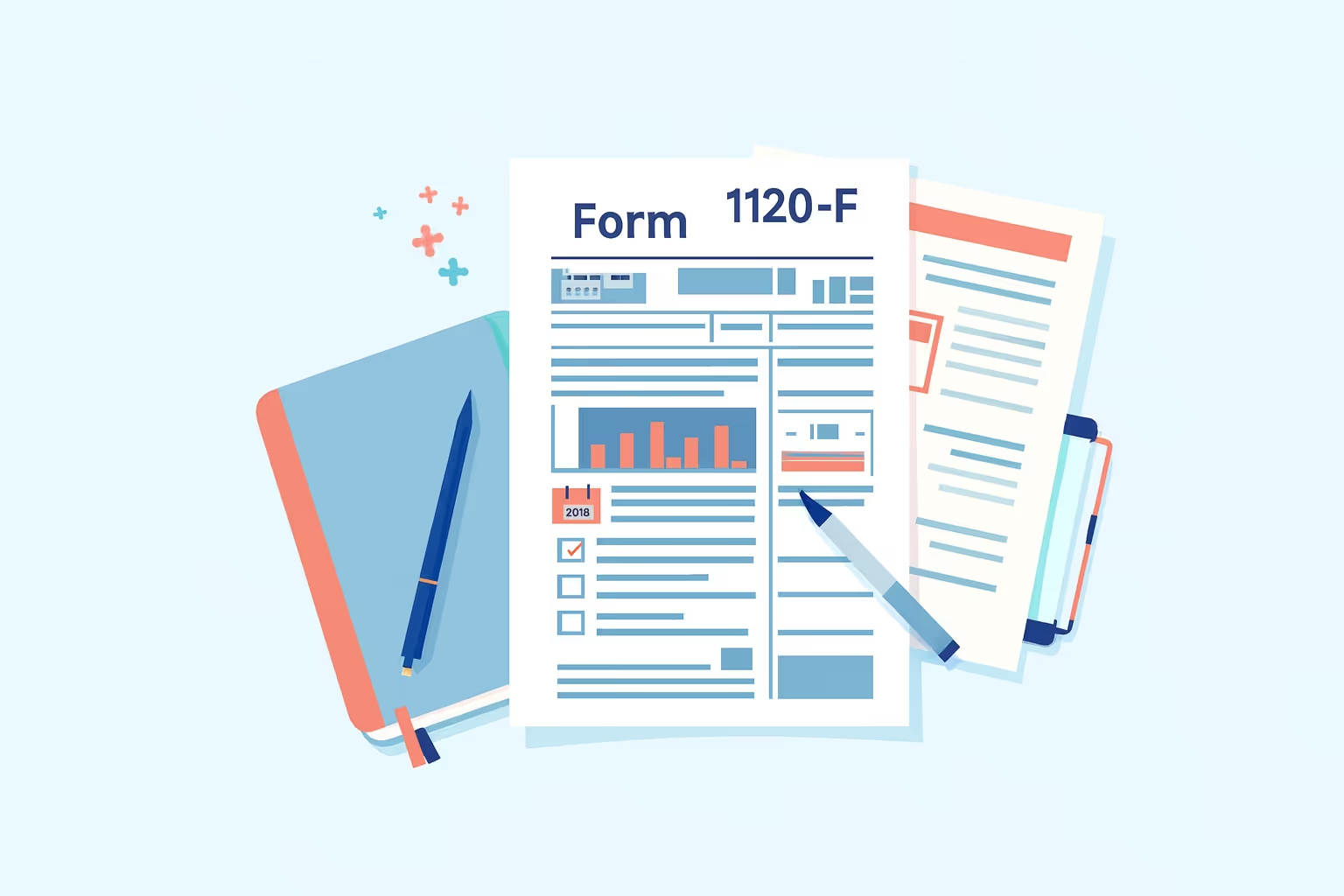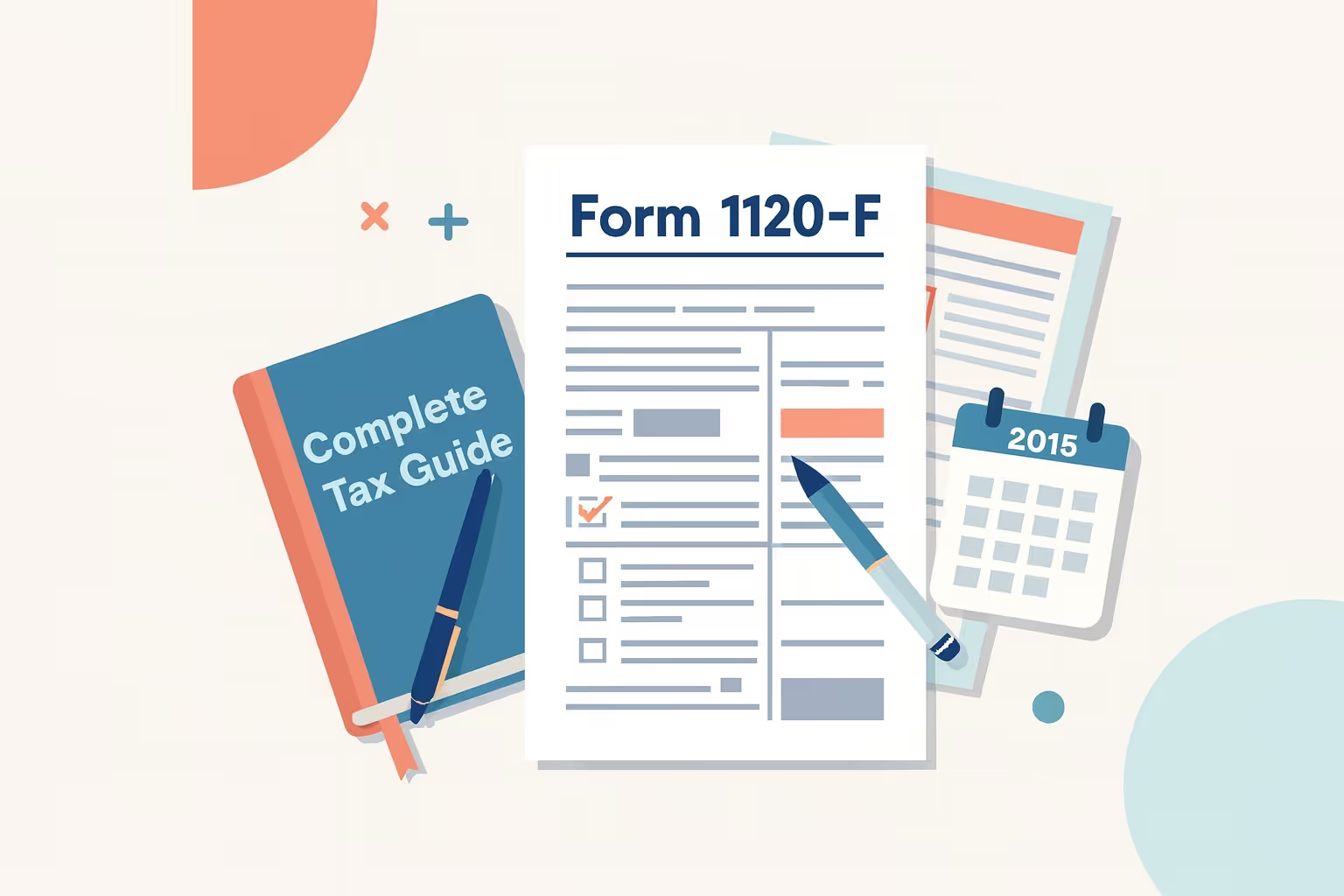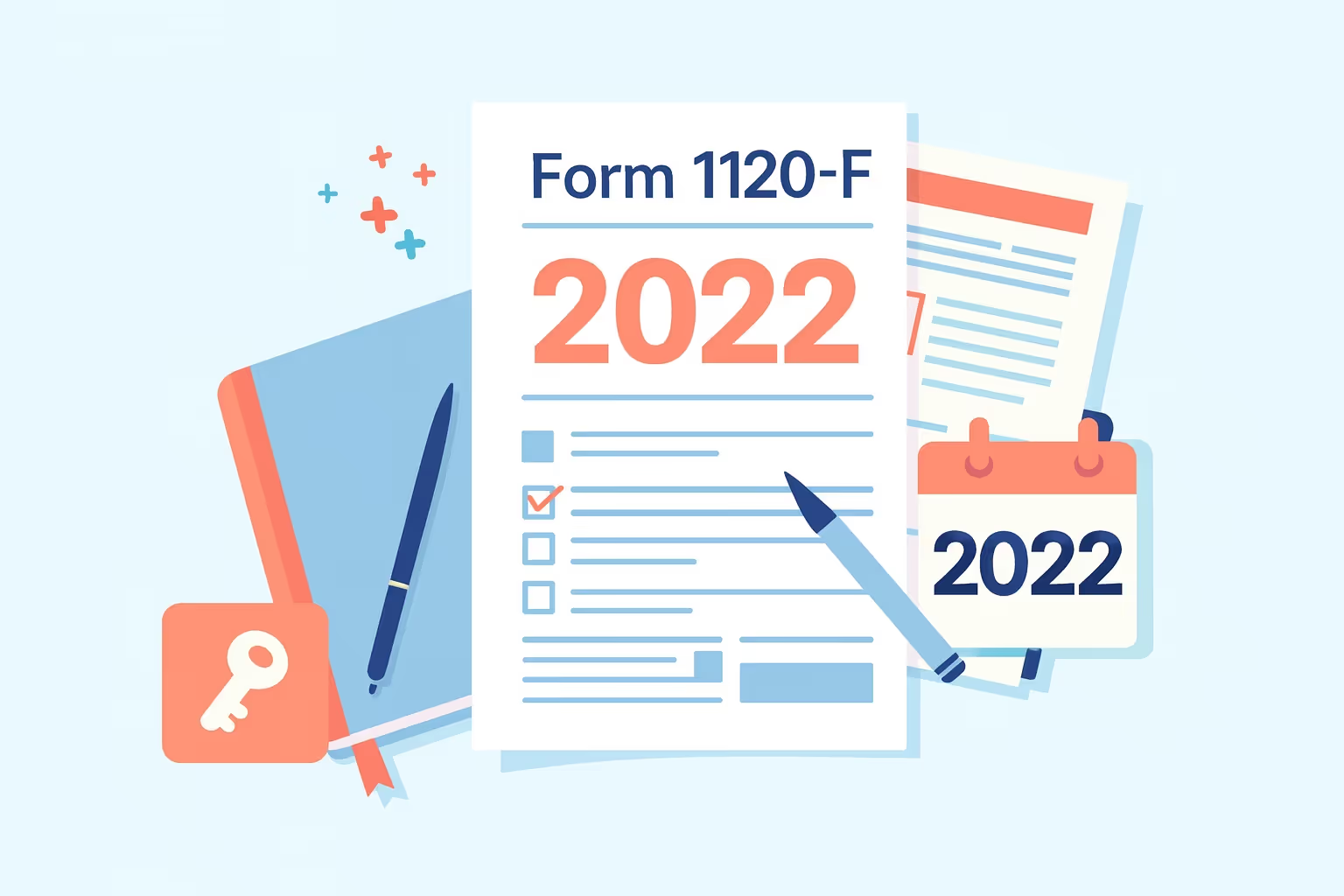
What IRS Form 1120-F (2020) Is For
IRS Form 1120-F (2020) serves as the official federal tax return for foreign corporations that report U.S. income, deductions, and overall income tax liability. It ensures accurate disclosure of business operations, income sources, and compliance with U.S. tax regulations.
Foreign corporations are businesses established outside the United States that earn income or maintain active operations within the country. Completing this form provides a transparent record of income, expenses, and credits in accordance with federal tax rules. It also preserves eligibility for deductions and refund claims when filed within the required deadlines.
Before filing, make sure you’re using the correct Business Income Tax Forms for your business type.
When You’d Use IRS Form 1120-F (2020)
Foreign corporations file IRS Form 1120-F (2020) when they have income or business activity connected to the United States. Submitting this income tax return ensures compliance with federal requirements, accurate reporting of taxable income, and protection of refund or deduction rights. Even when no tax is owed, filing safeguards eligibility for credits and future deductions.
Everyday Situations That Require Filing
- U.S. Trade or Business: The corporation operates or provides services within the United States to generate taxable income.
- Withheld Income: The corporation had taxes withheld that were not fully credited to its account.
- Refund Claim: The company files a request for repayment for taxes overpaid in prior periods.
- Amended Filing: The corporation submits a corrected return to fix errors from previous tax years.
- Protective Return: The corporation files to preserve eligibility for deductions on future claims.
Key Rules and Details for the 2020 Tax Year
Foreign corporations filing IRS Form 1120-F (2020) must follow specific rules that define how their federal tax return is prepared and processed. These rules govern income reporting, deductions, and disclosure requirements to ensure full compliance with U.S. tax law.
Corporate Tax Rate
The corporate income tax rate for 2020 was 21 percent, and both U.S. and foreign corporations calculated their income tax liability using this rate.
Filing Deadline and Disclosure Rules
Corporations with a U.S. office filed by the 15th day of the fourth month after year-end, while those without a U.S. office filed by the sixth month and were required to comply with updated disclosure standards.
Step-by-Step: How to File IRS Form 1120-F (2020)
Filing IRS Form 1120-F (2020) requires attention to detail and organized preparation. Each step supports accurate reporting and ensures compliance with U.S. tax regulations for foreign corporations.
Step 1: Gather Financial Records
The corporation collects 2020 income statements, receipts, and expense documentation to verify income and deductions.
Step 2: Verify Information
The corporation reviews all figures using prior returns or IRS transcripts to confirm accuracy.
Step 3: Complete the Form
The preparer fills out Form 1120-F for the correct tax year and includes complete business information.
Step 4: Attach Schedules and Forms
The corporation attaches Schedules H, I, M-1, and M-2, as well as Form 8833 for treaty benefits, and withholding forms such as Form 1042-S or Form 8288-A.
Step 5: Submit and Retain Records
The corporation mails the federal tax return to the IRS Service Center in Ogden, Utah, or e-files if eligible, and retains complete copies for a minimum of three years.
Common Mistakes and How to Avoid Them
Filing IRS Form 1120-F (2020) requires precision, and minor errors can lead to delays or rejection. Understanding where corporations often make mistakes helps ensure compliance and accurate federal tax reporting. Each issue listed below can be avoided through careful review before submission.
- Incomplete Schedules: The corporation reviews all attached schedules, including H, I, M-1, and M-2, to confirm each section is complete before submission.
- Unsigned Return: The corporation verifies that an authorized officer has signed the form before filing to ensure the return is valid and complete.
- Incorrect Filing Year: The preparer confirms that the correct 2020 version of the form is used before submission to prevent errors.
- Missing Form 8833: The corporation attaches Form 8833 when claiming treaty-based benefits to maintain compliance and avoid issues.
- Incorrect Mailing Address: The corporation sends the return to the IRS Service Center in Ogden, Utah, to ensure proper delivery.
What Happens After You File IRS Form 1120-F (2020)
After submitting IRS Form 1120-F (2020), the IRS reviews the information provided and processes the return within six to eight weeks. Returns that include amended data or incomplete attachments may take longer to review. Corporations should monitor mail or electronic notifications for updates on the status of their federal tax return.
The IRS may issue a balance due notice, a refund approval, or a request for supporting documentation. Interest begins to accumulate immediately on any unpaid income tax liability. Foreign corporations unable to pay in full can request an IRS payment plan for employment taxes or other obligations.
Frequently Asked Questions
Can a foreign corporation still claim deductions if it files IRS Form 1120-F (2020) late?
Yes, a foreign corporation can claim deductions if it files within 18 months of the original tax deadline, ensuring compliance with federal income tax requirements.
Does a foreign corporation need to file if it has no U.S. income?
Yes, a foreign corporation must file a protective federal tax return to maintain deduction rights and ensure compliance with IRS requirements.
Can a corporation e-file IRS Form 1120-F (2020)?
An eligible corporation can use approved e-file software to submit its tax return electronically, which helps speed up processing and confirmation.
How long does IRS processing take?
The IRS reviews an income tax return within six to eight weeks, based on the accuracy and completeness of the filing.
Can a tax preparer assist with IRS Form 1120-F (2020)?
Yes, a qualified tax preparer assists corporations in ensuring accurate calculations, meeting filing deadlines, and efficiently managing deductions and refund claims.
For a detailed breakdown of filing requirements, eligibility rules, and step-by-step instructions, see our Form 1120-F 2020 Instructions: Filing Guide for Corporations.




















